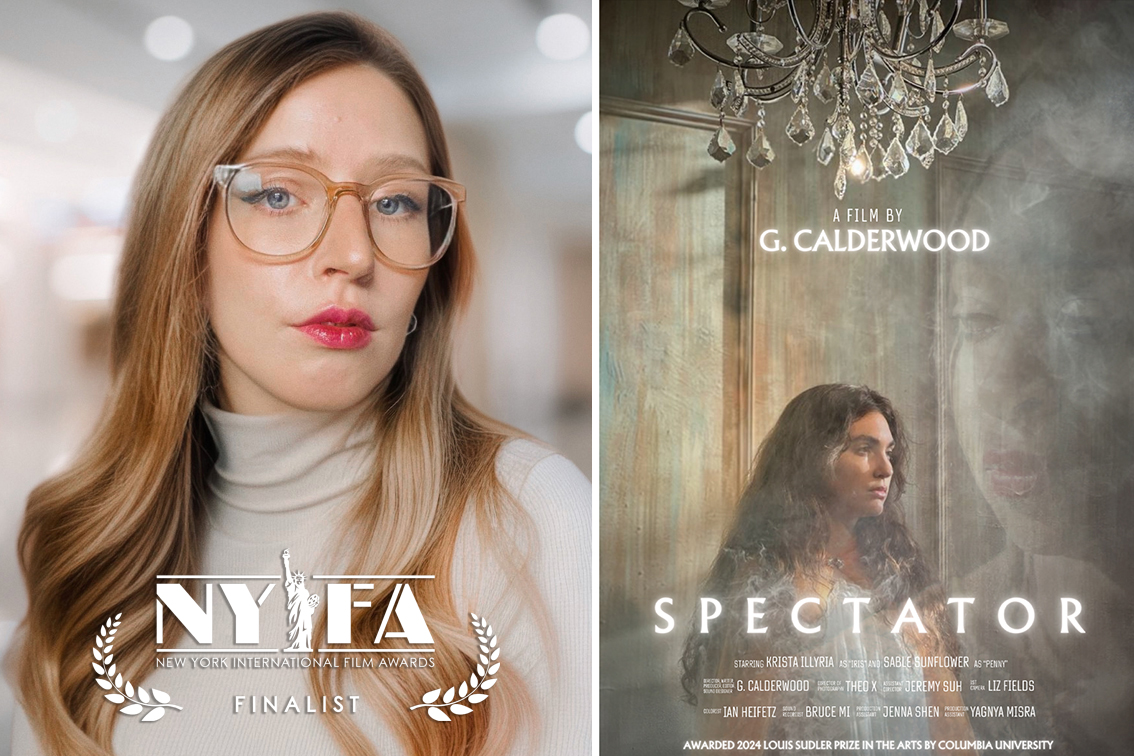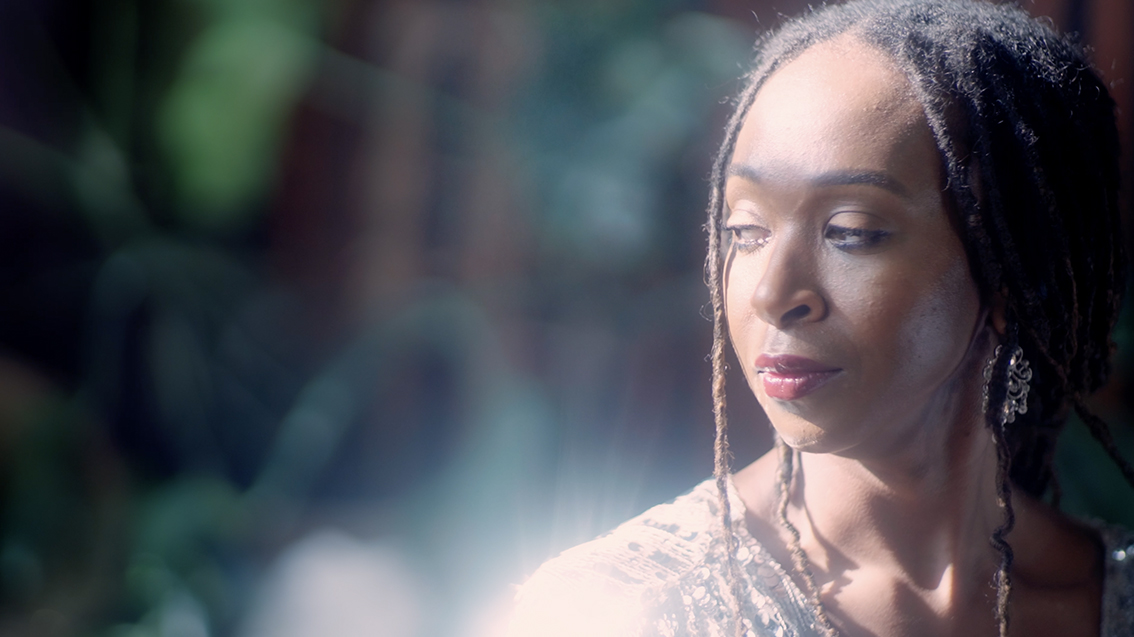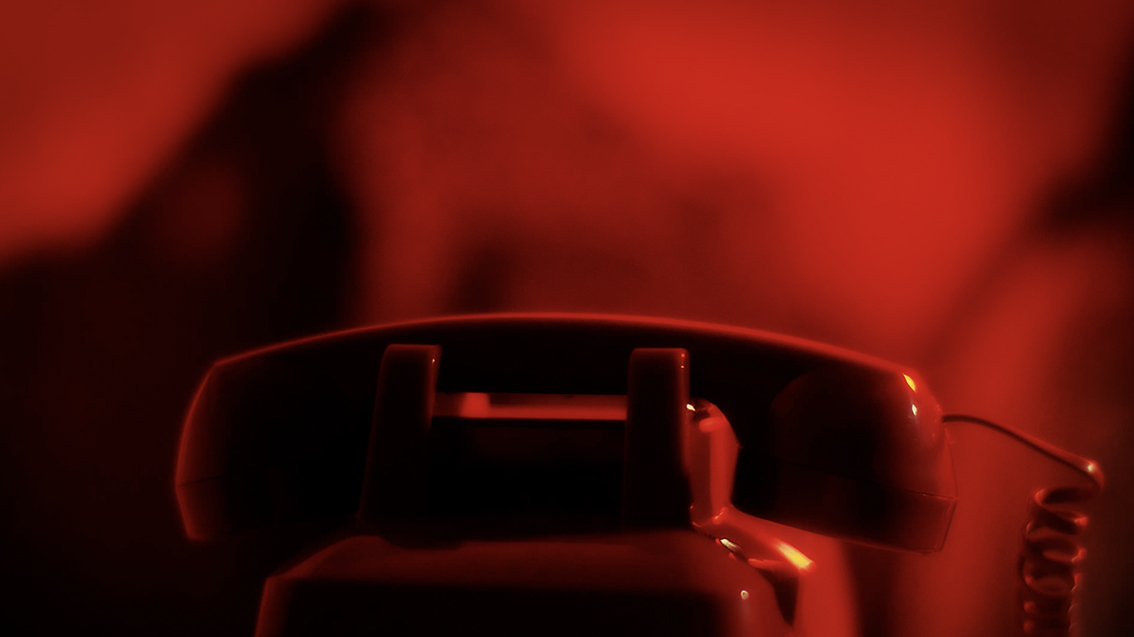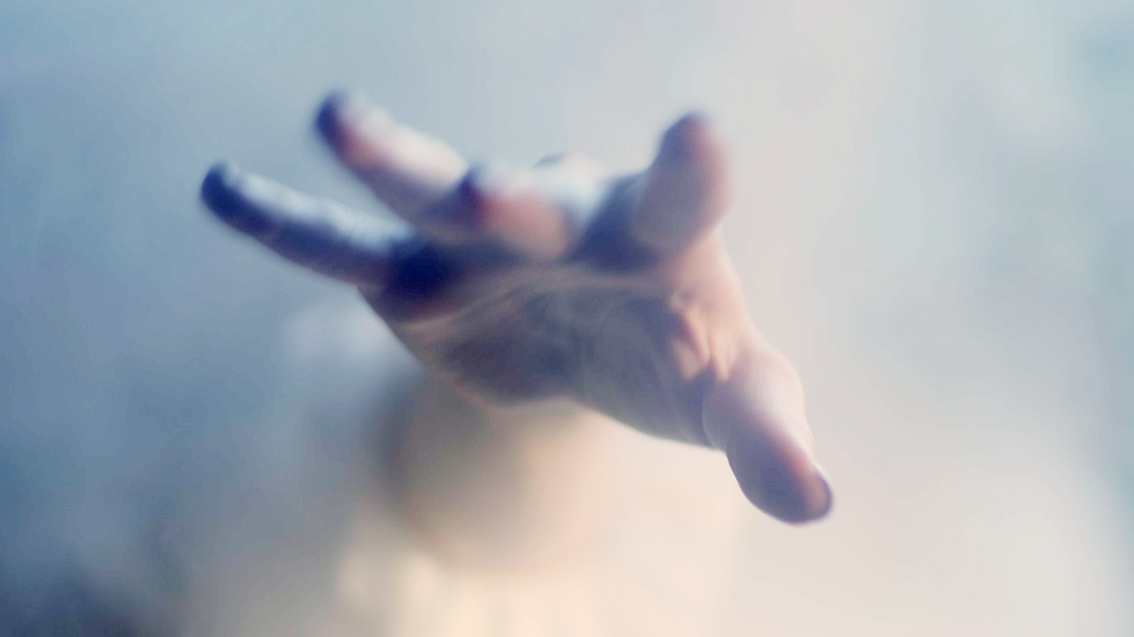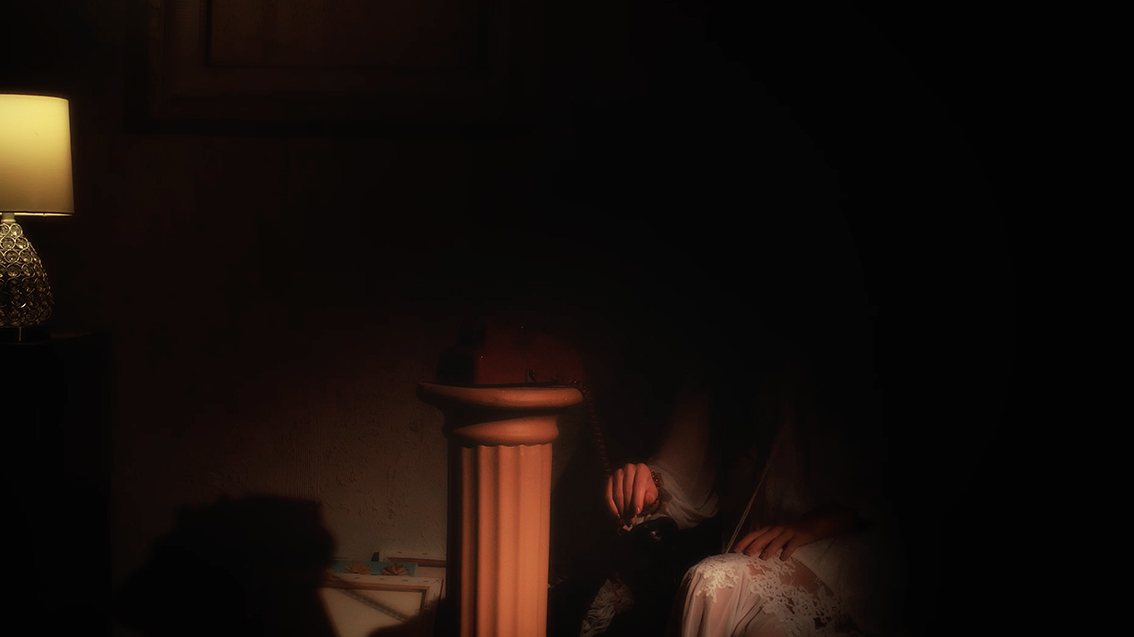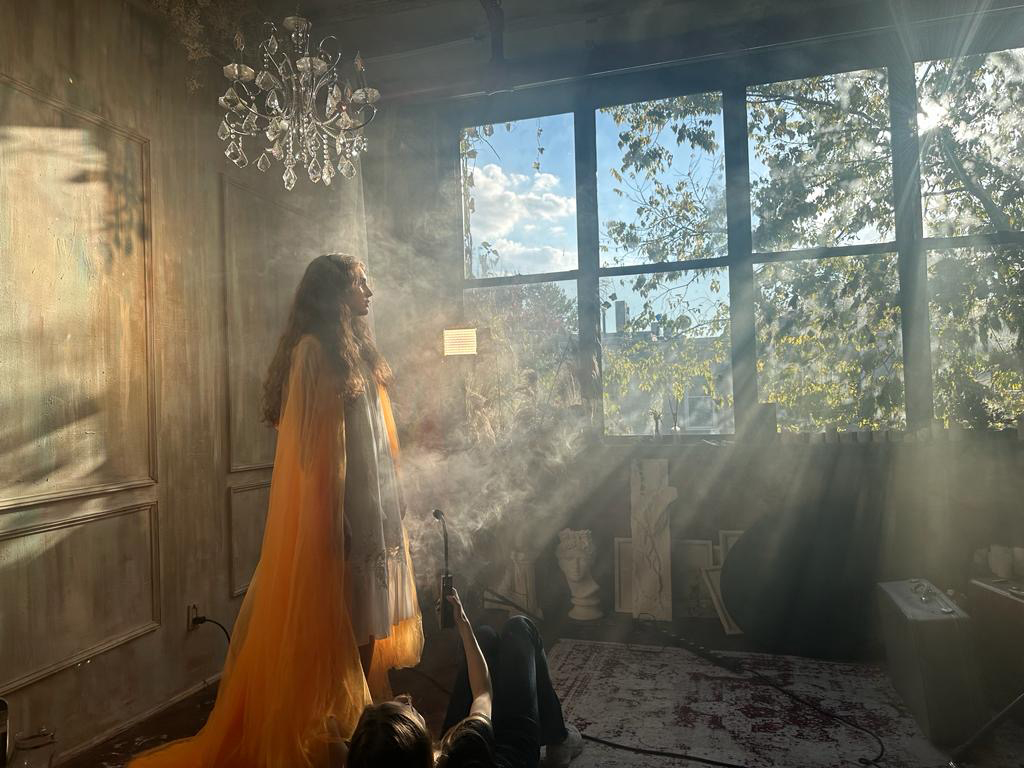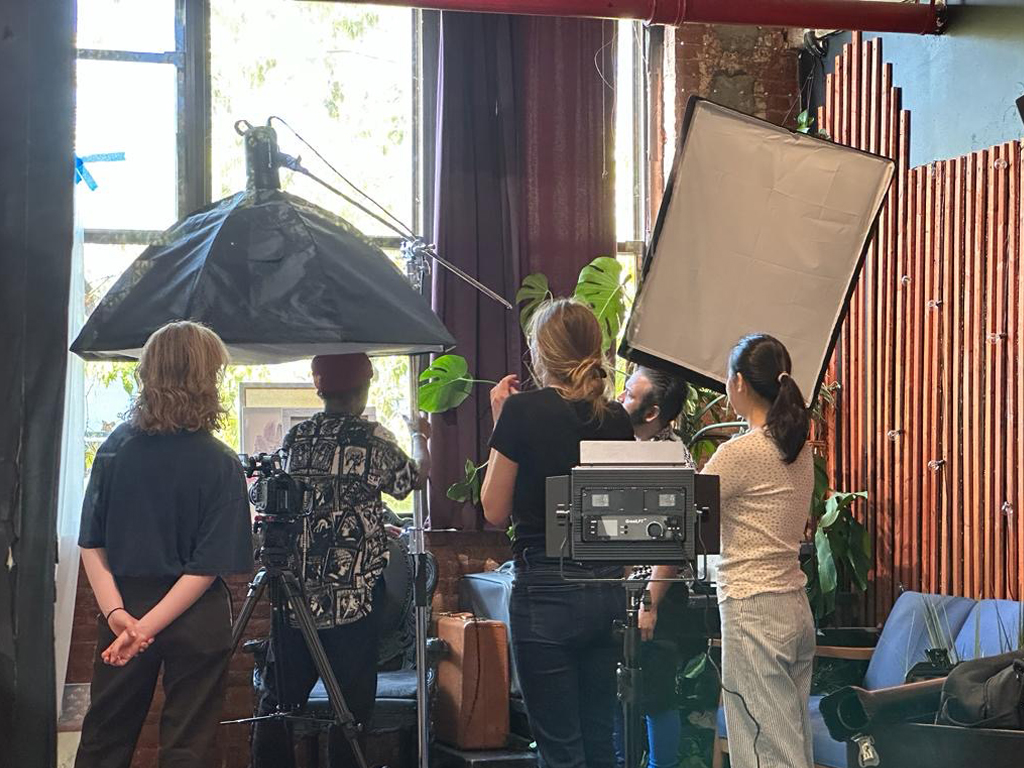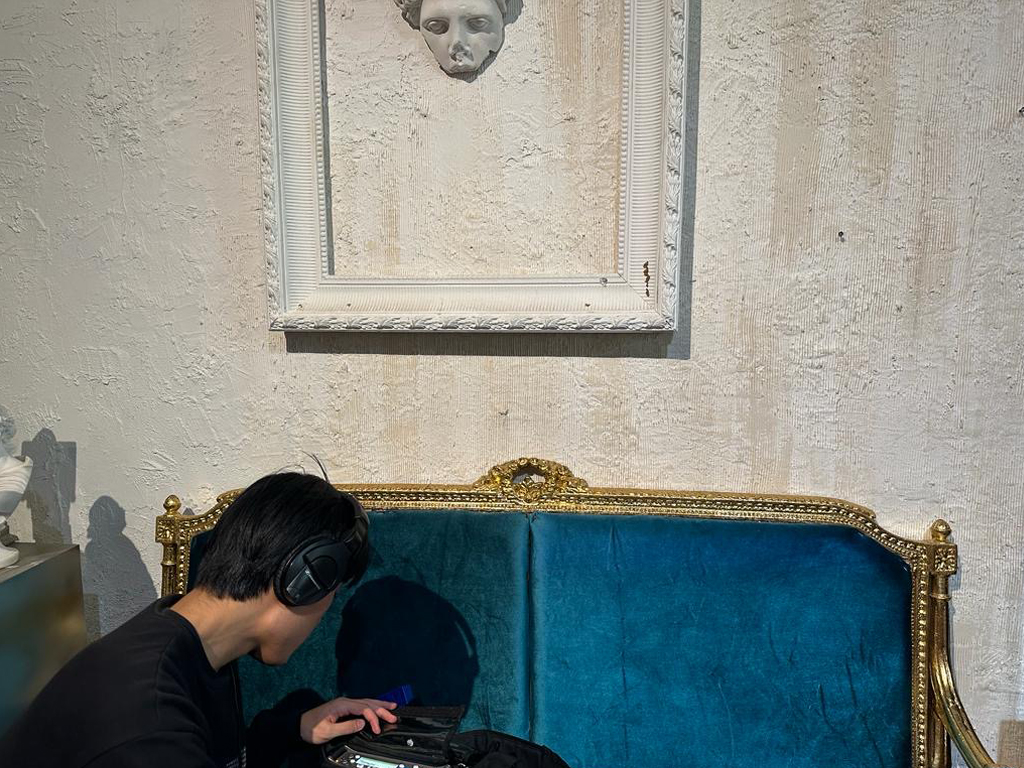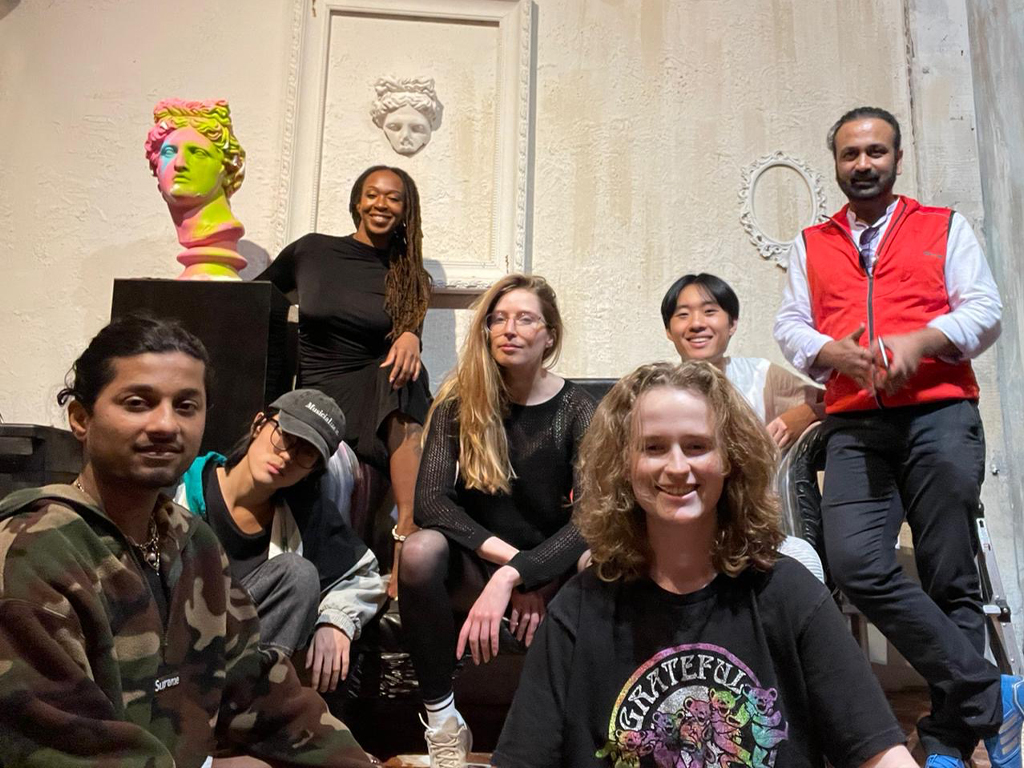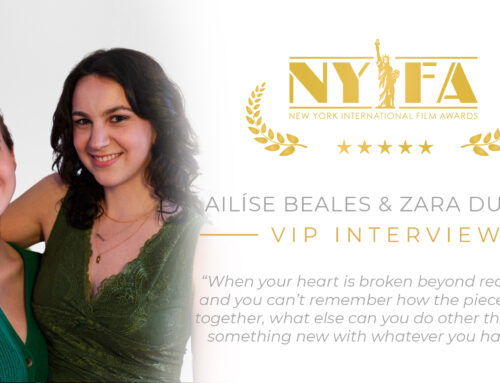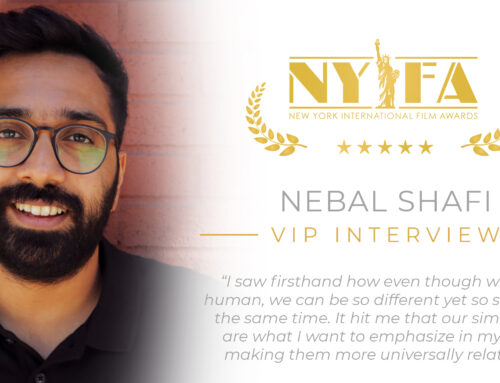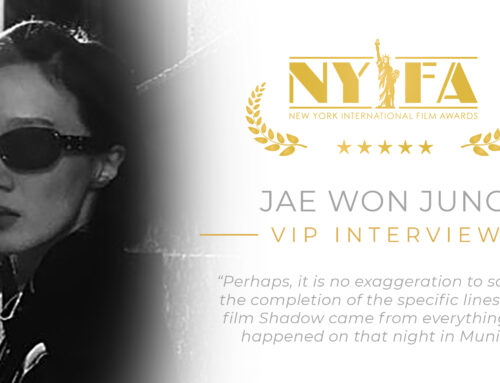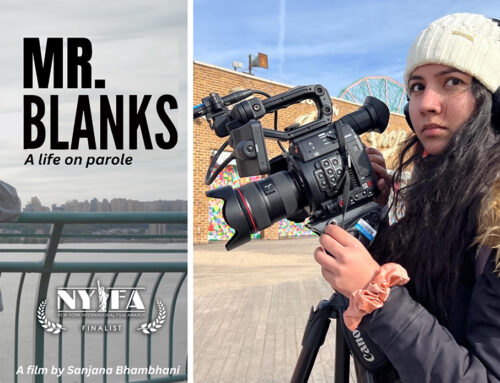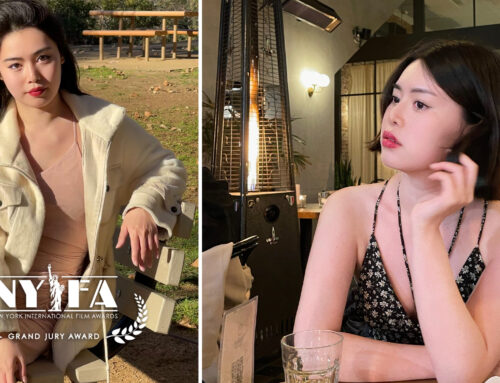VIP Interview with Grace Calderwood, director of the Short Film ‘Spectator’
Grace Calderwood is the talented writer, producer and director of the short film ‘Spectator’. In this interview, we discuss the inspiration behind the script, the preparation leading up to filming, and the importance of leaving the audience with unanswered questions.
Hi Grace! When did you decide to pursue a career in filmmaking?
In 2021, I made a music video to work through my emotions. I taught myself music production and made the best song I could in two months. Although I had no prior background in filmmaking, it made sense to me. I could visualize the pieces, so I could figure it out. It gave purpose to the many mismatched skills I acquired from my hobbies over the years. These include writing, character creation, and producing, styling, and modeling for fashion editorials.
I felt myself on set. Everywhere else in life, I was just performing. This was home.
With a background in military intelligence, how do you think your previous career has shaped and influenced your approach to the film industry?
I was a Mandarin linguist and intelligence analyst for multiple agencies over nearly a decade.
I was only nineteen years old when I became responsible for safeguarding state secrets. The stakes were incredibly high, and out of fear alone, I became excellent at my work. As time went on, these secrets grew heavier. I had seen the world with its skin peeled back to reveal the fragility of peace, the bleakness of war, and the extent of my own powerlessness.
Being unable to speak about my experiences directly has been an unexpected strength. I have no choice but to show-not-tell, to dig deeper into the psyche, to work in visual poetry and not in exposition. As my favorite Chinese expression goes, 塞翁失马,焉知非福. A curse might turn out to be a blessing, and vice versa.
Of course, practical aspects of my work also uniquely equipped me to work on film sets. Live operations taught me to work well under pressure, conduct myself professionally, pay close attention to detail, and devise adaptive solutions on the fly. I put the mission—the vision—first above my own ego.
What is the inspiration behind this script and what message do you want to communicate to the audience through your movie?
Spectator originated from my experience with dissociation and isolation. I wanted to show two perspectives—a person afflicted by these problems and a forgotten friend grieved by their absence.
It was important that I show consequences. Not punishments, but real effects we are forced to sit with. When we feel isolated and detached from life, it feels like nothing we do matters. This is an illusion. This film is a wake-up call. I hope someone who needs it will pick up.
The director Grace Calderwood and the official poster of ‘Spectator’
Can you share insights about the balance between improvisation and scripted elements during filming? As a writer/director, do you prefer allowing actors space for improvisation on set, or do you align more with emphasizing heavy rehearsal before shooting each scene?
I balance improvisation and rehearsal on a case-by-case basis. I include a shot priority list and allocate more time for complicated or important scenes. I try to balance the energy levels on set with getting enough raw footage to have options during editing. Good time management and maintaining a positive atmosphere on set can lead to spontaneous magic, and we certainly had plenty of that in Spectator.
Can you share with us the research and preparation you and the cast undertook before filming?
I provided my actors with a detailed character sheet so they could understand how and why they’d be portrayed. The character sheets included Iris and Penny’s deepest motivations, affinities, challenges, and functions in the story. To create those characters, I conducted extensive research on codependency, dissociation, and childhood role-selves.
My actors and I were on a very limited schedule, but we spent time getting to know each other better. I’m glad we did. Each actress had a distinct connection to her character, including some very painful experiences. I created a more protective environment for them than I would have been able to without that knowledge.
My actors took different approaches. Sable Sunflower, the actress for Penny, is a deeply intuitive person and a fellow filmmaker with a wealth of real-world experience. She taps into her emotions and uses acting as a form of catharsis. Krista Illyria is a professional model. She finds a point of entry—an image, a word, a moment of understanding—and immerses herself in a role as though it were a second skin. It was such a privilege to work with their unique styles.
I also created a detailed production website specifically for my film, which included resources for every member of the cast and crew.
How did you work with the voice-over artist? Is the voice one of the actors or is it an outside voice?
We recorded the voice-over in my home studio after I edited a rough cut of the film. The voice actor is Krista Illyria, the actress for Iris. I had her record it in multiple styles, then spliced the performances together how I liked. I had fun with the sound design during the phone scene. That creepy underlying tone is actually her voice repeated en masse with weird robotic effects.
Your cinematography is truly stunning in the film, giving the effect of a painting. How did you achieve this specific look, and how does the cinematography affect the narrative of the film?
I worked with the cinematographer to create a highly subjective and aestheticized world, oscillating between a gilded memory and a nightmare. The real-life scene, by contrast, feels painfully stagnant. I think it creates a hard line between memories, delusions, and real-world consequences.
We really enjoyed the locations and set design. Where did you shoot the film, and what was your mood board like when working with the art director?
I found an affordable, multi-faceted studio I knew I could use for all the scenes, which was the same approach I took with my music video. I incorporated objects in the studio with items I carefully collected over several weeks. I guess you could call me the props department.
My mood board combined my hand-drawn storyboard with various stills and two music videos—Retrograde by James Blake and White Foxes by Suzanne Sunfør—that communicated the softness and bleakness I wanted. Nothing quite sets the mood like music.
My cinematographer helped me arrange the objects in the studio. He has a great cinematic instinct and loves Krzysztof Kieślowski. I was so inspired that I took an auteur study on Kieślowski the following semester. We were really on the same page regarding the mood, placement of characters, and significance of certain props. The most challenging part was creating a believable hospital scene. He played a huge role in pulling that off.
When filming, how would you make a scene more accessible for viewers who aren’t familiar with the subject matter?
On the contrary, I like to make the audience think. I don’t think they need everything spelled out for them. A healthy level of confusion makes the film stay with them longer. Films you totally understand from the get-go are forgettable, in my experience.
Can you name three directors and/or three movies that made you choose to become a filmmaker?
Once I discovered the parallel between dreams and visual storytelling in film, I realized this was a medium I could pour myself into. Since then, I’ve studied Wong Kar-Wai, Krzysztof Kieślowski, and Dennis Villeneuve with particular interest. Before then, there was no particular movie or director I focused on. I was caught up in my dreams and innate visual imagery. I recently started making color palettes based on notable dreams.
Considering the most recent developments – do you think AI is a threat to the film industry or could it potentially be an ally?
All technology is a double-edged sword, and film is intrinsically linked to it. Cameras can be used for surveillance or for expression. AI can enhance our process or gut our careers. I have no doubt that a profit-based model will continue to shape the film industry’s future, as it has always done. I have no control over this. I make films because I need to on some level, regardless of the result.
If a machine ever makes a film because it needs to, I will have finally found a kindred spirit.
What do you think are the toughest aspects of making a film today?
Competing for attention is by far the most difficult part of filmmaking today, in my opinion. There is so much “content” out there polluting the waters, and everyone’s attention span is shot. For that reason, I try to make sure my films have a notable pulse. A rhythm, if you will.
What’s next for you? What are you working on right now?
I’m working on a film in which dreams and duality will play a prominent role, and not in the way you think.
Follow Grace Calderwood and her projects on:

